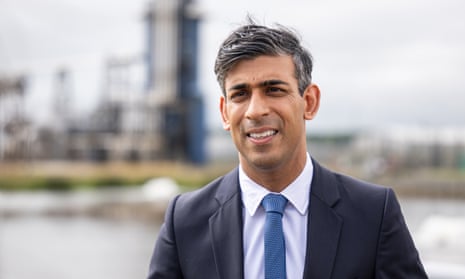Furious Protestors drape Rishi Sunak’s Home in Black Fabric, Demanding Change in Oil Policy

Furious Protestors drape Rishi Sunak’s Home in Black Fabric, Demanding Change in Oil Policy
In a gripping display of public dissent, protestors recently converged on the residence of Chancellor Rishi Sunak, donning black fabric as a symbol of their frustration with the government’s oil policy. The crowd, composed of environmental activists, concerned citizens, and grassroots organizations, made their voices heard, demanding urgent action to address the pressing climate crisis. The event marked a turning point in the nation’s climate movement, as public pressure mounted on the government to reevaluate its stance on oil and adopt more sustainable practices.

The demonstration took place amidst a backdrop of growing global climate concerns and surging public awareness about the impacts of fossil fuel consumption. Chancellor Sunak’s home, usually an emblem of privilege and power, became the epicenter of a movement seeking real change in policies that have long been critiqued for exacerbating climate change and environmental degradation.
As the morning sun gave way to a sea of black-clad protestors, the atmosphere was charged with passion and determination. Banners and placards demanding “Climate Justice Now” and “No More Oil Dependency” were raised high, while chants echoed through the streets, amplifying the protests’ demands. The collective message was loud and clear: the government must prioritize the environment and commit to a sustainable future.
The protestors’ grievances lie in the government’s continued reliance on fossil fuels, particularly oil, as a primary source of energy. They argue that the extraction, production, and consumption of oil contribute significantly to greenhouse gas emissions, air pollution, and habitat destruction. Many believe that this policy not only perpetuates climate change but also undermines the nation’s efforts to transition towards greener, cleaner alternatives.
Voices from the frontlines of climate change were particularly poignant during the demonstration. Activists from regions already experiencing the devastating effects of climate change, such as extreme weather events, rising sea levels, and ecological disruption, shared personal stories of loss and urged the government to act with urgency. Their heartfelt testimonials resonated with the crowd, fueling a collective determination to hold decision-makers accountable.
In response to the demonstration, government officials have acknowledged the growing pressure to address environmental concerns. Chancellor Sunak has pledged to meet with representatives from the climate movement to discuss their demands and explore ways to bridge the gap between the government’s oil policy and the aspirations of the people.
Despite the efforts of some to marginalize the protestors as radical activists, the overwhelming majority of those taking part were peaceful and non-violent. The movement has attracted people from diverse backgrounds, including students, teachers, workers, and retirees, illustrating that environmental concerns transcend age, occupation, and political affiliations.
The growing tide of public opinion in favor of sustainable energy sources has already begun to influence political decisions at the national level. Calls for increased investments in renewable energy, such as solar, wind, and hydroelectric power, are gaining traction among lawmakers. Environmental experts have praised these alternatives for their ability to provide clean energy without emitting harmful greenhouse gases.
Moreover, the oil industry itself has come under scrutiny as public awareness of its environmental impact increases. Responsible for significant carbon emissions and notorious for environmental disasters such as oil spills, the oil sector is facing increasing pressure to invest in cleaner technologies and transition away from fossil fuels. The demand for accountability and transparency from the industry has grown louder in recent years, with activists calling for greater scrutiny and regulation.
However, critics argue that a sudden and complete withdrawal from oil dependency could have serious economic consequences, affecting jobs and livelihoods that depend on the industry. Balancing the urgent need for environmental action with the realities of an energy-dependent economy is an intricate challenge that requires comprehensive planning and cooperation between various sectors of society.
As the protest continued, global leaders weighed in on the matter, expressing solidarity with the climate movement and urging countries worldwide to take more ambitious steps to combat climate change. The United Nations Secretary-General, for instance, called for more profound emissions reduction commitments in light of the IPCC’s stark warnings about the catastrophic impacts of unchecked global warming.
In conclusion, the protestors’ impassioned display of discontent at Chancellor Sunak’s home serves as a reminder that the fight for a sustainable and ecologically conscious future is far from over. Their demands for a shift in oil policy resonate with a growing global movement striving for climate justice. As the world grapples with the reality of climate change, leaders are faced with the imperative of making bold decisions to secure a livable planet for generations to come.
The protest has left an indelible mark on the nation’s conscience, and its impact will undoubtedly be felt in the corridors of power for years to come. The call for change has been sounded, and it remains to be seen how the government and the oil industry will respond to the collective voice of the people.






